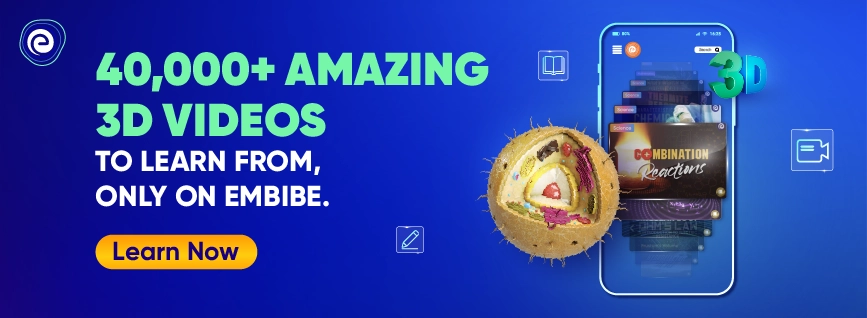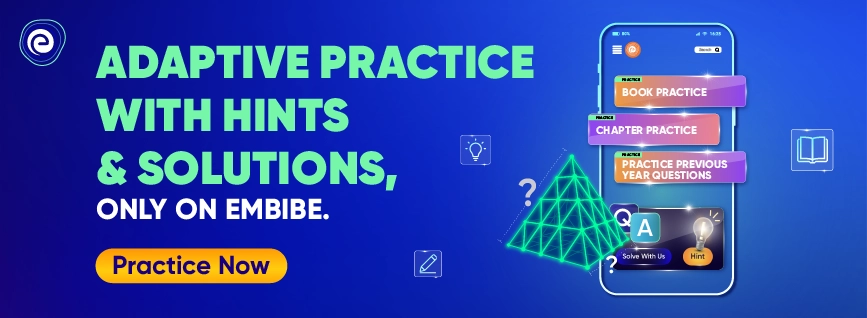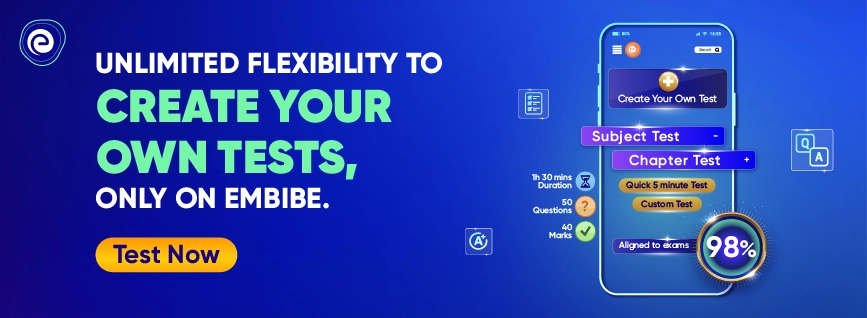- Written By
gaurav
- Last Modified 06-10-2023
AI in Education: Changing the Learning Landscape
Artificial intelligence (AI) has made its presence felt in every sphere of life, with education being no exception. With its ability to churn out and analyse massive amounts of data, learn from it, and make decisions based on that data, AI undoubtedly has the potential to revolutionise the way we learn and teach. The scope of AI in education is rapidly expanding, and its applications are many.
In addition, AI in education is streamlining administrative tasks such as grading and attendance tracking,ing up teachers’ time to focus on more important tasks. By leveraging AI to analyze student data, educators can make data-driven decisions to improve student performance. In this article, we will explore the various aspects of AI in education, its applications, and its limitations.
Artificial Intelligence and Education
Holistic learning is essential for leading a successful life. There are, constantly, a number of developments happening around the world to improve the education system, ranging from the way of teaching to the type of curriculum. Artificial Intelligence is a booming technology that is being used in almost every sector, and education is one sector where AI is proving to make a huge impact.
By analysing data from students’ interactions with educational content, Artificial Intelligence (AI) can identify patterns and predict learning outcomes. It also automates administrative tasks such as grading, scheduling and even content creation. This can up time for educators to focus on more important tasks, such as personalised instructions and mentorship.
AI technologies in education also incorporate natural language processing, chatbots, virtual and augmented reality, and gamification, transforming the way we teach and learn.
Role of AI in Education
The role of AI in education is to enhance the learning experience by providing personalised, adaptive and data-driven guidance. AI can help educators identify individual learning styles, preferences and strengths, and create personalised learning paths that adapt to each student’s progress. By providing targeted feedback and support, AI can help students overcome their weaknesses and build on their strengths.
In addition, AI can provide valuable insights into the effectiveness of teaching strategies and educational resources. By analysing data from student interactions with content, AI can identify patterns and predict outcomes. This can help educators create more effective teaching strategies, improve student engagement and reduce dropout rates.
The role of artificial intelligence in education (AI in Education) is not limited to just personalization. AI can also be used to automate administrative tasks, such as grading and attendance tracking,ing up teachers’ time to focus on more important tasks.
Application of AI in Education
The application of AI in education sector are many and varied. Some of the most promising applications include:
Personalised Learning: AI in Education can help teachers create personalised learning paths for each student, based on their unique learning style, pace and preferences. It can help students overcome their weaknesses and build on their strengths. At EMBIBE, students can get personalised learning using a feature called Achieve. It works in three steps, namely, create and attempt the diagnostic test, plan the target and start the Avheive journey.
Adaptive Practice: AI can help teachers create adaptive practice that adjusts to each student’s skill level and progress. EMBIBE uses advanced AI technology to set adaptive practice for students wherein questions are served based on a student’s mastery.
Intelligent Tutoring Systems: AI can help teachers create intelligent tutoring systems that provide personalised feedback and support to students. By adapting to each student’s pace and progress, AI can help students learn more efficiently and effectively.
AI Chatbots and Virtual Assistants: AI-powered chatbots and AI virtual assistants at Embibe can help students get instant answers to their questions, and access educational resources. It also helps teachers to get rich learning content for efficient teaching.
Content Creation: AI can help educators create educational content for various exams that is tailored to individual students’ needs and preferences. EMBIBE uses AI that can identify gaps in knowledge and creates content that addresses those gaps by studying data from student interactions.
Benefits of AI in Education
There are multiple benefits of using AI in education, such as:
- 24/7 Learning Access: Students can learn anywhere, at any time, with AI-powered learning.
- Better Participation: Individualised schedules, online interaction and personalised recommendations increase students’ interest in their studies.
- Less Pressure: Students are less stressed about their studies with AI-driven learning. It assists students with complete explanations whenever they ask a question.
- Real-time feedback: Artificial Intelligence in Education can provide immediate feedback to students, enabling them to adjust their learning strategies and improve their performance.
Future of AI in Education
AI has a bright future in education and has the power to completely change how we teach and learn. By using machine learning and data analysis to provide insights into student performance, personalised and adaptive learning enables artificial intelligence (AI) to customise education to individual student requirements and skills.
The efficiency of a teacher can also be improved through administrative automation and natural language processing,ing up more time for instruction and engagement with pupils. The future of education appears to be more efficient, effective, and personalised than ever before as AI technology develops. AI in education aims to provide “AI for all” by creating personalized and inclusive learning experiences.
Role of Embibe in Promoting AI in Education
Embibe utilizes artificial intelligence (AI) to provide personalized learning and assessment solutions to students. Embibe’s AI-based platform analyzes student data and provides customized recommendations to help students improve their performance.
Through Embibe’s AI-based platform, students can receive real-time feedback and track their progress. Overall, Embibe’s use of AI in education highlights the potential of this technology to enhance the learning experience and provide personalized support to students.
Examples of Artificial Intelligence in Education
Importance of AI in Education is shown below with examples:
Intelligent Tutoring Systems: AI-powered systems that provide personalized instruction and feedback to students, adapting to their individual needs and learning pace.
Adaptive Learning Platforms: AI algorithms analyze students’ performance data to create customized learning paths, adjusting content and difficulty levels to optimize learning outcomes.
Automated Grading and Feedback: Artificial Intelligence can automatically grade assignments, quizzes, and exams, providing immediate feedback to students, saving time for educators, and ensuring consistency in evaluations.
Natural Language Processing: AI-powered chatbots and virtual assistants can answer students’ questions, provide guidance, and engage in interactive conversations, enhancing the learning experience.
Data Analytics and Predictive Modeling: AI algorithms analyze vast amounts of educational data to identify patterns, trends, and potential areas of improvement, aiding educators in making data-driven decisions.
Speech Recognition and Language Translation: Artificial Intelligence (AI) can assist in language learning by accurately transcribing and translating speech, enabling students to practice pronunciation and understand foreign languages more effectively.
Personalized Learning Content: AI algorithms can curate and recommend learning materials based on students’ preferences, learning styles, and performance, fostering individualized and engaging learning experiences.
Virtual Reality and Simulations: AI-driven virtual environments and simulations, such as Embibe Lab Experiments provide immersive and interactive learning experiences, allowing students to explore and practice real-world scenarios in a controlled and safe environment.
Intelligent Content Creation: AI can generate educational content such as quizzes, interactive exercises, and simulations, augmenting the availability and diversity of resources for educators and learners.
Use of generative AI in Education
Generative AI has the potential to revolutionize education by making it more personalized, engaging, and effective. As this AI technology continues to develop, it is likely that we will see even more innovative ways to use it in the classroom. ChatGPT, Bard, Cohere Generate, Claude, and Synthesia are some great tools using generative AI technology.
What is AI in Education?
AI in education refers to using smart technologies to make learning easier and more personalized. It includes things like computer programs that can help you learn, like a virtual teacher or a chatbot that answers your questions. It can also include tools that can grade your assignments automatically, saving time for teachers. Overall, AI in education is about using technology to improve the way we learn and teach.
FAQs
Here are some of the most frequently asked questions on AI in education.
Q. Can AI solve education problems? A. Yes. AI solves numerous education challenges, such as closing the technology gap between students and teachers, maintaining transparency in the learning system, low teacher-to-student ratio, etc.
Q. How can AI help in finding ways to better education? A. AI can evaluate papers faster than humans. This will allow teachers to spend more time working with students on critical thinking and analytical skills.
Q. Which learning platform uses AI in education in India? A. EMBIBE is one of the learning platforms that use advanced AI technology that helps students improve their performance and increase their confidence by providing targeted feedback and support.
Q. How is AI changing the education industry? A. Using AI, the education industry can provide services such as video lectures, webinars, digital textbooks, mock tests, personalised learning journeys, automated test generation and evaluation, etc.
Q. How does artificial intelligence enable adaptive assessments and personalized feedback for students? A. Artificial intelligence enables adaptive assessments and personalized feedback for students through platforms like Embibe. Embibe uses AI algorithms to analyze students’ performance data, identify their strengths and weaknesses, and dynamically adjust the difficulty level and content of assessments to match their individual needs.
Q. Can Artificial Intelligence replace the teachers? A. It is unlikely that artificial intelligence (AI) will replace teachers in the near future. On the other hand, AI can be a valuable tool for teachers. AI can be used to provide teachers with data about student learning, which can help them to create more effective lessons.
We hope this article helps in understanding the role and scope of AI in the education ecosystem. Feel to reach out to us to know how EMBIBE leverages AI to deliver a hyper personalised learning experience. We will get back to you at the earliest.








































